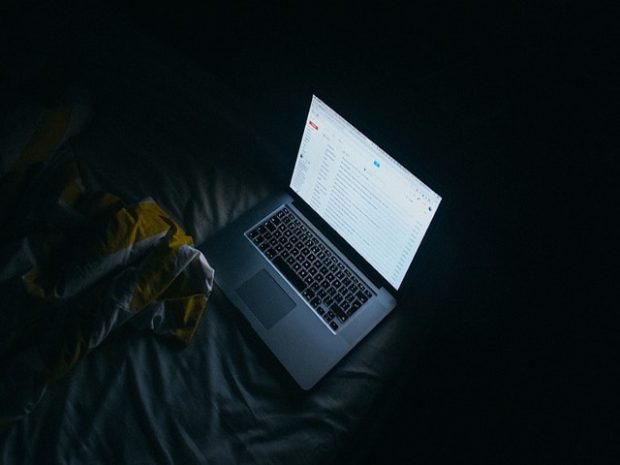You have no items in your cart. Want to get some nice things?
Go shopping
Digital Meets Analog
I think my fingers are taking me to Google but we somehow land at my inbox. Forty-something emails are still marked unread because the dopamine hit comes from clicking them open, not replying.
My attention drifts to the article I should be writing. I put on my jacket and close the door behind me, leaving my laptop alone in the dark.
I wander up to campus and find an empty classroom. One hour. Airplane mode. Pen and paper, nothing else. In the silence, I grasp for my own knowledge, juggle ideas sloppily on the page until they wind more and more tightly. A yawning circle becomes a target. With an idea, with the kind of fire that comes from rubbing knuckles against paper, I return to my room and to the glowing green eye of a laptop charger in the dark.
Expert Contagion
In 2016, Steven Sloman and Nathaniel Rabb told a group of individuals that a new rock had been discovered. The rock glowed in the dark for reasons geologists couldn’t explain. None of this was true.
Then they told a second group about the rock, but this time they said its phosphorescence was easy for geologists to explain. Sloman and Rabb didn’t give the second group any more information about the rock than the first.
Even so, when both groups were asked to rate how much they knew about the rock, the second group’s ratings were significantly higher than those of the first. The mere impression of scientists’ knowledge levels was enough to influence what subjects thought they themselves knew. For the second group, the aura of expertise had somehow spread from the scientists to the subjects, who were now laying claim to the mere existence of an explanation.
The idea that our brains are unable to distinguish between other people’s knowledge and our own is better known as the community-of-knowledge hypothesis. We rely on others to provide us with an understanding of the world around us. Knowledge communities can consist of a group of Inuit elders, a network of New York literary editors, or any set of authorities on a given subject. They enable physicians to prescribe the right fever medication, farmers to plant the crop appropriate to the season, and physicists to map the stars of the Milky Way. Collectively, they provide information that quickly gets fashioned into ideas. Those ideas are available to anyone who picks up a book or, for that matter, a screen.
The Search
There’s a danger to knowledge communities. When we can’t recognize where our understanding ends and someone else’s begins, we may unwittingly source our explanations from questionable places. While Sloman and Rabb examined the influence of a live, hypothetical scientific community, Matthew Fisher and his team at Yale looked at the effect of a community that was virtual, anonymous, and for many of us, indispensable.
Fisher asked subjects to rate their knowledge of topics such as American History before and after they completed an unrelated series of Internet searches. A control group completed the same task without Internet use. While the control group gave consistent knowledge ratings from the beginning of the task to the end, there was significant leap in the ratings by those who used the Internet. This second group didn’t distinguish between what they knew at that moment and what they might learn from a theoretical somebody. Merely entering terms into a search box changes our self-perception on a global level.
When confronted with a gap in our understanding, most of us take to our screens. We’re turning more and more to a community of knowledge that claims expertise in an infinite number of disciplines. A smartphone in hand makes us think we’re much smarter than we are on a given topic, even when we haven’t put in the research. The result is we’re asserting perceptions of reality with confidence bred by illusion. We don’t seem to be aware of how badly we confuse the knowledge of the online community for our own.
That sort of shaping has real-world implications when we take into account the biases promoted by the websites we visit. In Algorithms of Oppression, Safiya Umoja demonstrates that racism and sexism are inherent to commercial search engines. Corporate sponsors decide what appears at the top of the results list. We can only conclude that our perceptions are being shaped by suspect authorities.
Information and Distraction
The explosive growth of available information has precipitated a change in how we learn. In many classrooms, rote memorization is being replaced with critical thinking tasks. If finding relevant content is more important than remembering the content itself, maybe we don’t need to distinguish between what’s swirling in the cesspool of our brains and that of the digital world.
Adrian Ward and his colleagues at the University of Texas investigated technology’s influence on our ability to perform cognitively demanding tasks. They looked specifically at working memory, or the ability to hold information in our head while using it, and fluid intelligence, or the ability to recognize patterns and solve problems. Subjects were tested in these two domains while their phones were within arm’s reach, on the other side of the room, or in another room. The closer the phone, the more poorly its owner performed on both tests. The effect was even stronger for those who reported higher levels of dependence on their phones.
If a text message has the same effect on our attention as hearing our name called, we can imagine what happens when we’re hit with comments on our latest Facebook profile picture, new Instagram followers, tweets and retweets. The same interface that promises us all the knowledge we’ll ever need also promises us all the attention we’ll ever need. On silent, they create an addictive attentional lottery.
The virtual knowledge community comes at a high price. The effort required to keep away from our devices depletes our mental resources so that we’re less equipped for the world outside of our screens. While finding original ways to engage with information is important in a new way, it’s also difficult in a new way. Our phones are draining our cognitive batteries.
On the other hand, it’s been demonstrated that being unexpectedly parted from our devices causes a form of separation anxiety that also undermines cognitive performance. To avoid this, Ward suggests planning periods during which we can leave our phones at home.
Hope in Expectation
The screen’s light is ghastly. My fingers autopilot to Gmail while my eyes adjust. I compose a message to Steve Sloman, my old boss from my days as a research assistant. I remember reading about a study involving the discovery of an element, I say, but can’t find the paper on Google. Steve sends me the PDF within the hour.
Pandora had the one box. Maybe she could have left it at home. But our boxes are slimmer and more portable. They tempt us from our bedrooms, our backpacks, and our pockets. We unlock them and there is Hades to pay. But mixed in with the chaos, those boxes hold what Hesiod called elpis, usually translated as hope but also meaning expectation. It’s much easier to find what we’re looking for when we expect that it’s findable. If I were attempting to write about that glowing rock experiment a few decades ago, I might still be waiting for Steve’s reply by snail mail, or else thumbing through library catalogs in search of a title I couldn’t remember.
I open the PDF. There it is, the mysterious energy source that fueled me through that first hour on airplane mode. A phosphorescent rock. I read the story I have just lived, of how a hypothetical discovery leads to an actual one. Analog writing sprints are now my daily practice.
Works Cited
Ward, Adrian, Kristen Duke, Ayelet Gneezy, and Maarten W. Bos (2017, April 3). Brain Drain: The Mere Presence of One’s Own Smartphone Reduces Available Cognitive Capacity. Journal of the Association for Consumer Research, 2(2). Retrieved online. http://dx.doi.org/10.1086/691462
Sloman, Steven A. and Nathaniel Rabb (2016). Your Understanding Is My Understanding: Evidence for a Community of Knowledge. Psychological Science, 27(11) 1451-1460.
Fisher, M., Goddu, M. K., & Keil, F. C. (2015, March 30). Searching for Explanations: How the Internet Inflates Estimates of Internal Knowledge. Journal of Experimental Psychology: General. Advance online publication. http://dx.doi.org/10.1037/xge0000070

Samantha Steiner
Samantha Steiner is a writer and visual artist. She holds a B.A. in comparative literature from Brown University and is an MFA candidate in nonfiction writing at Sarah Lawrence College. In 2017, she served as a Fulbright Scholar in Argentina.
- Web |
- More Posts(1)




